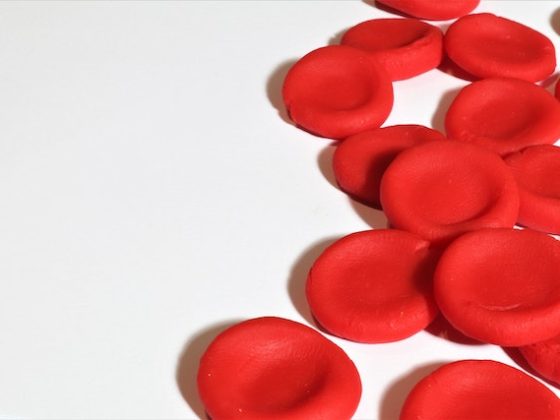Hey there! This post may contain affiliate links. As an Amazon Associate, I earn a teensy commission from qualifying purchases when you buy through these links (at no additional cost to you). For more info, please check the full disclaimer.
Hormones are one of those words you hear a lot about as a layperson but do not know the importance of, not truly at least. As far as health goes, many assume hormones are something the doctor has to worry about. After all, there are things like weight loss or bulking that are more important as a healthy human being. In truth, however, hormones need to be taken seriously.
These biochemical messengers regulate nearly every physiological and behavioral process, including metabolism, stress, sleep, and reproduction. Simply put, hormones rule your body, and your dietary choices play a starring role in keeping them in balance.
What is the Importance of Hormones
Hormones serve as the body’s internal communication system. They travel through the bloodstream to various tissues and organs, orchestrating processes like growth and energy use. Hormonal imbalances aren’t often talked about, but they’re some of the most adverse health issues one can have. Unfortunately, they’re also some of the harder aspects of health to understand as a layperson.
Take insulin, for instance: if it’s out of whack, you’re looking at diabetes, a problem a lot of folks face as they get older. That’s not even getting into thyroid hormones. If they go haywire, your metabolism could tank, leaving you sluggish and possibly dealing with issues like hypothyroidism.
Read More: Unusual Signs of Thyroid Problems
Must-Have Foods for Good Hormone Health
Nutrition directly influences hormone production and function. It’s the biggest aspect that matters as far as hormone production is concerned, barring inherited traits and genetics. Let’s dive into some key foods to focus on for better hormonal balance:
1. Fatty Fish
Think of fatty fish like salmon, sardines, and mackerel as hormone helpers that swim from the ocean right onto your plate. They do more than just keep your heart happy. The fats in these fish are like building blocks for making hormones and helping your cells talk to each other.
2. Avocado
Avocados aren’t just the stars of your guac. These creamy fruits come loaded with monounsaturated fats that do wonders for your insulin, the hormone that keeps your blood sugar in check. Keeping insulin levels steady helps you store less belly fat, adding another win for your hormonal balance. Avocado is a familiar sight in any low-glycemic meal.
Read More: Alarming Signs of Diabetes in Women
3. Leafy Greens
You probably know that leafy greens like spinach, kale, and Swiss chard are nutrition superstars. Loaded with must-have minerals like iron, calcium, and magnesium, these greens play a big part in creating hormones and keeping your endocrine system running smoothly.
4. Nuts and Seeds
Almonds, walnuts, and flaxseeds are more than just munchies with a crunch. These little powerhouses help out big-time in the hormone department. Loaded with a cocktail of nutrients and essential fats, they multitask like champs, both helping your body produce hormones and keeping inflammation at bay.
5. Cruciferous Vegetables
You might have given broccoli, cauliflower, and Brussels sprouts the side-eye when you were a kid, but it’s time to give them a second chance. These are some of the best vegetables for promoting healthy hormones, especially for diabetic women. They’re great at breaking down estrogen more efficiently, so you’ll want to add them to your plate if you’re watching your hormone levels.
Read More: Best Foods to Boost Estrogen Levels
6. Whole Grains
Whole grains aren’t just tasty fillers like quinoa, barley, and whole-wheat bread. They’re also your wingmen in keeping insulin levels steady. Unlike their refined counterparts, whole grains pack a lot of fiber, which helps slow down how quickly sugar hits your bloodstream.
Lifestyle Changes for Hormone Balance
Diet is the biggest factor for hormone management, but there are other adjustments you can make to further enhance your hormone health. Truth be told, these lifestyle changes only serve to “speed up” the improvements that a better diet is already making for your body.
7. Exercise Regularly
Breaking a sweat gets all sorts of good hormones pumping, helping your heart, making insulin work better, and brightening your mood. Things like running, cycling, and swimming ramp up your endorphins. These give you a natural mood boost on top of the other, more tangible health benefits. You can start small by doing daily yoga or an easy home workout.

8. Skip Processed Foods
The convenience of processed foods comes at a price: your hormonal health. Such foods are often high in sugar, unhealthy fats, and additives, leading to spikes in insulin levels and contributing to insulin resistance over time. Combined with their inability to make you feel as much as they should, constantly eating processed foods is not great for people concerned about their hormone health.
Read More: Worst Foods for Hormones
9. Get Enough Sleep
You’ve probably heard it several times, but it’s worth repeating: Good sleep is a game-changer for keeping your hormones in line. Skimping on sleep throws cortisol, your main stress hormone, in a chaotic flux. Plus, it messes up how your body handles insulin and hunger hormones like ghrelin and leptin. The result? You might gain weight and be even more stressed. Try drinking sleep herbal teas before bedtime to enjoy a restful night.
10. Limit Stress
Getting rid of stress entirely might be a pipe dream, but keeping it in check is doable. Long-term stress keeps cortisol levels up all the time, messing with other hormones like insulin and those that come from the thyroid. To keep stress at bay, mindfulness, meditation, and deep-breathing exercises are solid go-to’s.
11. Avoid Overeating and Undereating
Keeping a balanced diet is essential. Eating too much or too little throws hormones into disarray. For instance, overindulging often spikes insulin levels and can make you resistant to insulin. On the flip side, not eating enough can raise cortisol levels, which messes with your metabolism.
Final Thoughts
Achieving hormonal balance isn’t an overnight process; it requires a consistent and comprehensive approach involving both diet and lifestyle changes. But the payoff is immense. Balanced hormones translate to better health, improved mood, and a more efficient body.
So, the next time you make a food or lifestyle choice, remember its potential impact on your hormonal health. Prioritize your well-being through balanced nutrition and smart lifestyle decisions, and your hormones will thank you.
References:
- http://tinyurl.com/food-as-a-hormone
- http://tinyurl.com/nutrition-impacts
- https://www.ncbi.nlm.nih.gov/pmc/articles/PMC3147122/
- http://tinyurl.com/foods-affect-our-hormones
Author: Katie Pierce is a teacher-slash-writer who loves telling stories to an audience, whether it’s bored adults in front of a computer screen or a bunch of hyperactive 4-year-olds. Writing keeps her sane (most of the time) and allows her to enjoy some quiet time in the evening before she walks into a room of screaming kids (all of whom she loves dearly) the next morning.








